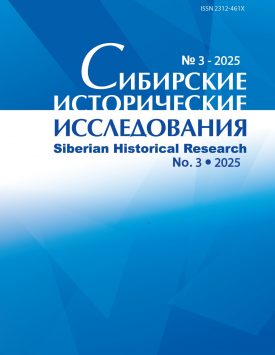Languages of Representation of Forced Displacements: Authority, Identity, and Memory. Introduction to the Special Theme of the Issue
This article introduces the thematic issue dedicated to the anthropology of Soviet deportations and outlines a conceptual framework for analyzing narratives of forced displacement through the lenses of language, memory, and identity. The issue is based on materials from the panel “Anthropology of Mass Deportations in the USSR” at the XV CAER (2023). The authors argue that legal, administrative, and journalistic vocabularies dominate the representation of deportation experiences, often failing to reflect the social and cultural complexity of the events. Particular attention is given to forms of vernacular memory-localized, non-institutionalized modes of remembering and transmitting trauma rooted in oral histories, family archives, and visual practices. Drawing on the theoretical insights of B. Misztal, M. Hirsch, R. Bendix, and M. Rothberg, the article explores how memory about Soviet deportations is constructed outside official narratives, often entering into competition or dialogue with other traumatic histories. The authors identify three levels of description: the language of power, academic discourse, and the language of victims, proposing an interdisciplinary approach to understanding collective memory. The issue includes case studies on the deportation of Armenians in 1949 and the expulsion of Armenians from Nakhichevan in 1988-1989. The article shows how deportations served not only as political instruments but also as catalysts for identity formation, memory transformation, and the reconfiguration of community boundaries in the post-Soviet context. The authors declare no conflict of interests.
Keywords
forced displacement, Armenians in the USSR, collective memory, language of description, anthropology of violence, vernacular language, narrativeAuthors
| Name | Organization | |
| Guchinova Elza-Bair M. | Institute of Ethnology and Anthropology, Russian Academy of Sciences | bairjan@mail.ru |
| Shagoyan Gayane A. | Institute of Archaeology and Ethnography, Armenian Academy of Sciences | gayashag@yahoo.com |
References

Languages of Representation of Forced Displacements: Authority, Identity, and Memory. Introduction to the Special Theme of the Issue | Sibirskie Istoricheskie Issledovaniia – Siberian Historical Research. 2025. № 3. DOI: 10.17223/2312461X/49/5
